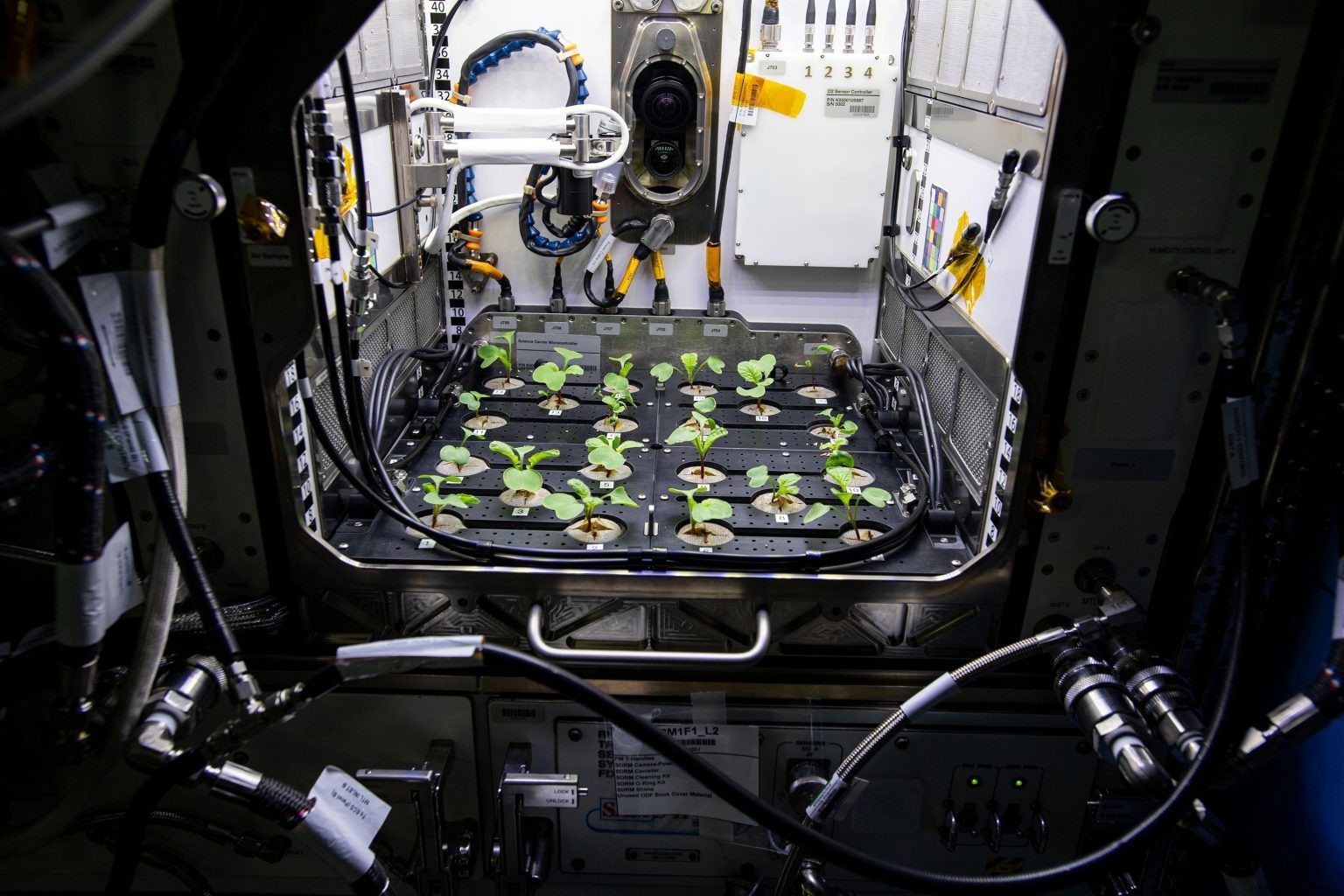Researchers describe three strains of "good" bacteria found aboard the ISS belonging to a previously unknown species. These could one day allow astronauts to grow plants on Mars. Study details are published in Frontiers in Microbiology .
American and Indian researchers working in collaboration with NASA announce that they have isolated four strains of bacteria from the Methylobacteriaceae family, taken from aboard the International Space Station (ISS). One of these strains – Methylorubrum rhodesianum – was already known (discovered in an old HEPA filter in 2011). On the other hand, the other three, collected in 2015 and 2016, are new to science.
One of them was found on a panel hanging from the ISS research stations, the second inside the observation cupola, and the third on the surface of the dining table. These three strains were named IF7SW-B2T, IIF1SW-B5 and IIF4SW-B5. Genetic analysis has also proven that they are closely related to Methylobacterium indicum .
According to analysis, they belong to a new species. The team, led by geneticist Swati Bijlani, proposed naming it Methylobacterium ajmalii .
While the discovery may come as a surprise, remember that ISS astronauts have been growing small amounts of food for years. It is therefore not surprising to isolate microbes on board the station.

These four strains belong to a family of bacteria, found in soil and fresh water. We know that they are involved in nitrogen fixation, phosphate solubilization, abiotic stress tolerance, plant growth promotion and biological control activity against pathogens.
In other words, they are earth bacteria, and what's more, "good" bacteria.
The discovery is significant, as NASA (and others) plan to establish a permanent foothold on Mars in the coming years. And to do that, we're going to need allies.
“To grow plants in extreme locations where resources are minimal, isolation of new microbes that help promote plant growth under stressful conditions is essential » , point out Kasthuri Venkateswaran and Nitin Kumar Singh, of NASA's JPL.
Considering that these microbes can survive the harsh conditions of the ISS, the team subjected the four strains to genetic analysis to search for genes that could be used to promote the plant growth.
Researchers have already found that one of the strains – IF7SW-B2T – develops promising genes involved in the production of an essential cytokinin enzyme , which promotes cell division in roots and shoots.
So this is great news for the future, and there could be many more. Indeed, researchers have only "scratched the surface" of the microbial diversity present onboard the ISS. Approximately 1,000 samples already collected still need to be analyzed.